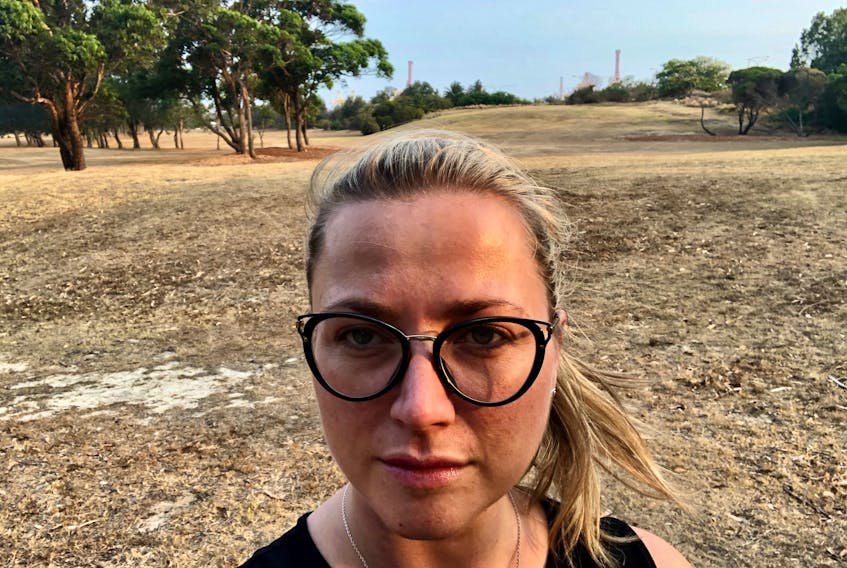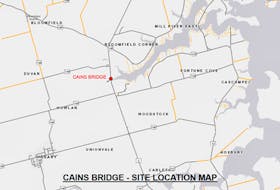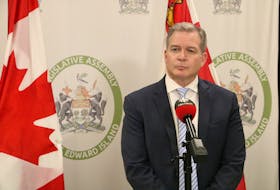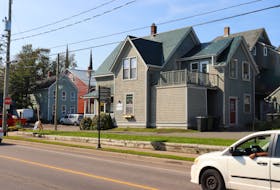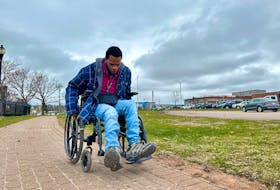A Charlottetown woman living in Sydney, Australia, says there is only one word to describe the raging wildfires — catastrophic.
“Our country is burning,’’ Chelsea McBride said with a heavy sigh in a telephone interview this week with The Guardian, “but, everyone has come together in a way I’ve never seen before. It reminds me of being on P.E.I.’’
The wildfires are burning an area larger than the size of Nova Scotia, fueled by persistent heat waves, high winds, one of the worst droughts the country has seen in decades and the effects of climate change. The fires have been burning for more than a month, with no end in sight, and speculation the fires will burn out of control until April.
Volunteer firefighters are battling a blaze that has swelled to 8.4 million hectares over the course of the last five months and has destroyed more than 2,000 homes. The death toll has risen to 24 people, and researchers estimate nearly 480 million mammals, birds and reptiles have been affected in New South Wales alone since September. Nearly 70 fires are considered not contained.

McBride, who lives in Sydney with her husband, Derek, and their two little girls, works as a trauma nurse. She and Derek have called Sydney home since 2010.
The closest fire they’ve had to their home is a mere four kilometres away.
“We were placed on wait-and-watch status, which luckily we have not had to act on. Daily, we have been experiencing poor air quality with measurements exceeding what is considered hazardous.’’
She has been told to work from home to avoid being outside and because road closures pop up without warning. The learning centre her two- and four-year-old daughters attend has cancelled field trips and outdoor play on multiple occasions. The local fire service has advised people to cease all non-essential travel.
There has also been an increase in cardiac arrests and acute respiratory issues. New South Wales is actively seeking nurses and doctors with an emergency background to volunteer up to two weeks of their time to hospitals in need.
And, her heart breaks at the toll it has taken on the wildlife. She recently took her daughters to an animal sanctuary. The temperature outside was 43.5 C.
“The trees in which the koalas called home had been wrapped in frozen ice packs to which they clung,’’ she said. “Can you imagine the heat and distress experienced by the animals close to and within the fire zones, without respite and assistance? It is simply heartbreaking.’’

Cornwall native Andrew Dennis, who operates a martial arts academy in Byron Bay (in New South Wales), said the world is just now waking up to the devastation that has been going on for months.
Dennis said he and his wife, Alice, live within 20 kilometres of some of the worst fires.
“Bush fire season is every year at this time in Australia. It’s just a normal part of life here. This year, though, it’s obviously gotten well out of control,’’ said Dennis who has been in Australia since 2005.
“There were a couple of mornings, in particular, where we would wake up and there would be smoke on our property and fallen ash on our vehicles. We thought ‘Oh, shit, this is bad’. We’ve had some friends in rural areas who were starting to get evacuated. It’s just been escalating.’’
Did you know?
Following are some facts about the fires burning in Australia, based on various news reports:
- The fires cover an area larger than the province of Nova Scotia.
- The fires are nearly 10 times the size of the Fort McMurray fire, which burned 589,000 hectares in 2016 and forced upwards of 88,000 people from their homes
- The Australian Bureau of Meteorology says New South Wales has endured its driest 34-month period on record
- Australia has experienced its second warmest January-to-October period compared to records dating back 110 years
- There are more than 135 fires burning across New South Wales
- More than 1,000 firefighters have been battling the fires for more than a month
- Australia has deployed 3,000 army, navy and air force reservists to help
- The fires have destroyed more than 2,500 buildings, including 1,300 homes
- Deaths are estimated at 24 people
- Researchers estimate almost 500 million mammals, birds and reptiles have been impacted in New South Wales alone
Dennis said people are blaming climate change. And, they’re angry with government for not being more prepared, considering how bad the drought was. He said they’re also furious that the prime minister went to Hawaii on vacation recently, despite the raging wildfires.
He said the drought conditions are hard to describe as temperatures continue to soar into the 40s.
“Our lawns, our plants in our garden, I mean, it’s impossible to keep anything alive. And the real kicker this year has been, once the fires get started there have been some really windy days, so that just helps them spread.’’
Dennis said every single person in Australia knows someone personally who has been affected directly. One of his coach's families was evacuated from his home.
“You’re breathing in smoke and you think of people losing their homes. Right now, it’s 100 times worse than we’ve ever been and it’s probably going to get worse. This isn’t a one-off thing. This is a part of life as we deal with climate change.’’
As for the impact on wildlife, Dennis said the images people have seen on the news don’t come close to capturing it. There are farmers who have lost thousands of cattle and when the count is tallied it will be a figure people can’t wrap their minds around.
“It’s a reminder how easily the things in our lives can be taken away from us. You go down to the coffee shop and people are actually, like, we’re all in this together. People are trying to keep a smile on their faces as the country is burning.’’

Lindsay Clements, a native of Beach Point who has called Sydney home for the last 15 years, describes the situation as a mixture of sadness and disbelief with courage and resilience thrown in. The nearest fire is burning 17 kilometres from her home.
“On Christmas Eve in western Sydney, it looked like it was starting to snow,’’ Clements told The Guardian on Tuesday. “Ash from the nearby Gospers Mountain and Green Wattle Creek fires was falling from the sky like fluffy snowflakes. The harsh smell of smoke quickly reminds you otherwise. Just days ago, the suburb we call home was officially registering as the hottest location on the planet — the whole planet.’’
Clements said it was 49 C, a temperature so intense she could feel the heat entering her lungs.
“Knowing you have mates only hours away fighting fires in full suits of safety gear, friends trying to save their homes without any safety gear and animals of all shapes and sizes with literally nowhere left to run makes it very easy not to feel sorry for yourself.’’

The volunteer fire service has her family on a watch-and-act advisory. She has a bag packed. It sits at the bottom of the stairs. With a 15-month-old daughter and a sick mother with her, she has to be ready to go at a moment’s notice.
“Last week, you'd have done well to find a fire blanket, hose or fire extinguisher on the shelves at a local hardware store. Last weekend was the riskiest few days for our suburb so far. We have lots of summer left to get through and we’d be naïve to think there isn’t the potential for more danger.’’
Many nights, Clements said she looks our her window to the glow of the fires in the distance as the smoke floats outside.
Still, Clements said she hasn’t had it tough compared to others.
“I have friends who have lost homes, some who are currently displaced. Other friends, who volunteer as rural firefighters, have seen unspeakable things and work countless hours to fight the fires (and) establish containment lines.’’
One of those firefighters is Brad Romaniuk, incident commander with Parks Canada in P.E.I., who flew in to help. Clements grew up with his wife, Arja, back home in Beach Point.
“The last time I checked, Brad was farther south fighting the Dunn’s Road fire, which has been one of the most destructive. Jet lagged, in a foreign country and fighting fires — amazing stuff.’’
Clements says there are numerous stories of heroics, escape and devastation.
“For the areas impacted by the bush fires, there aren’t necessarily safe places, there are simply safer places, and we all need to do our bit to look after each other.’’
RELATED:
- Australia hasn't asked for any relief help from P.E.I. yet, but Islanders still raising money
- Former Corner Brook woman on alert as fire moves closer to her Australian home
- Devastated Down Under: Newfoundland woman living in Australia worries about wildfires
- Woman from Annapolis Valley living near Melbourne ‘scared for Australia’ as fires persist
- DAN LEGER: Australian bushfires hold lessons for the whole world
- Australia calls for another mass evacuation as monster bushfires return
- Former Truro woman cares for koalas injured in Australian bushfires
- Devastated Down Under: Newfoundland woman living in Australia worries about wildfires
- LETTER: Dire straits in Australia

